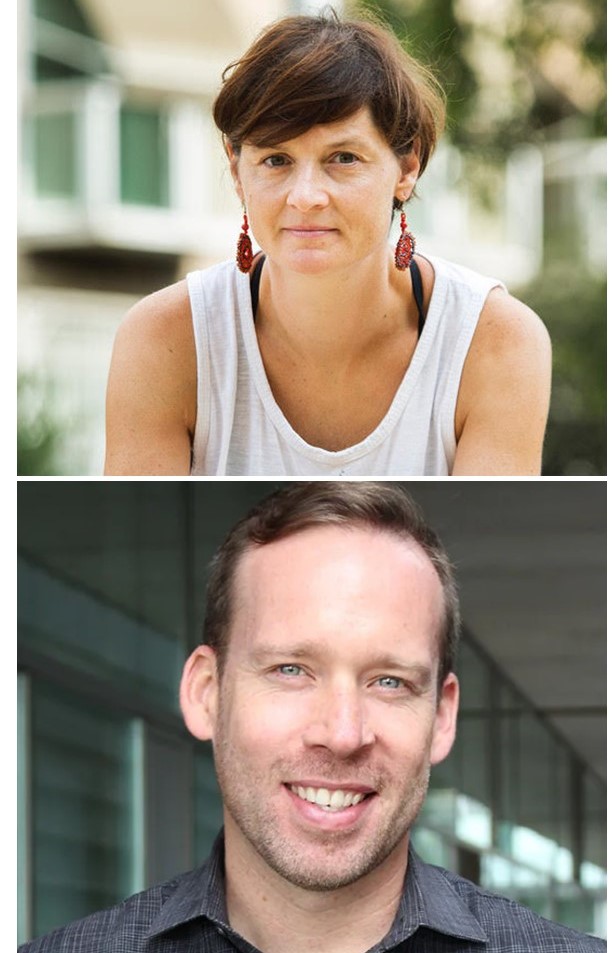The Green City and Social Injustice

Isabelle and James are leading experts in their field—equitable urban planning. Their work evaluates how urban planning and policy can foster more just, sustainable, and resilient cities. In their most recent project, looking beyond a more traditional conceptualization of environmental justice, they examine Green LULUs (locally unwanted land uses) or how city redevelopment and greening can result in displacement and other justice concerns. This talk is sure to be compelling to anyone interested in exploring urban planning topics and how strategies to eliminate one environmental justice concern—disparate pollution and contamination exposure, can result in another—gentrification. Lastly, their research lab, the Barcelona Lab for Urban Environmental Justice and Sustainability, strives for actionable and accessible results, a model for all environmental researchers and communicators.
—Carly Norris, MESM 2022
Watch a recording of this talk here
ABSTRACT
In this talk, Isabelle Anguelovski and James Connolly will share insights from their recent book The Green City and Social Injustice (Routledge, 2021), which explores and problematizes urban environmental trajectories since the early 1990s in 21 cities of Europe and North America. Based on field work in ten countries, they analyze how urban greening in globalizing cities is increasingly entangled with environmental inequalities and injustices and creates a green divide between a privileged white and higher-income elite and socially vulnerable residents—within neighborhoods and across neighborhoods. The experiences from those 21 cities also reveals the entanglements of urban greening with neoliberal municipal policies including budget cuts for community initiatives, long-term green spaces, and housing for the most fragile residents; and the focus on large-scale urban redevelopment and high-end real estate investment. Last, they will also explore hopeful experiences and civic mobilizations from cities where urban greening has long been accompanied by social equity policies or managed by community groups organizing around environmental justice goals and strategies.
BIOS
Isabelle is the director of the Barcelona Lab for Urban Environmental Justice and Sustainability (BCNUEJ), and Universitat Autonoma de Barcelona (UAB) ICREA Research Professor, a Senior Researcher and Principal Investigator at Institut de Ciència i Tecnologia Ambientals (ICTA) and former coordinator of the research group Healthy Cities and Environmental Justice at Institut Hospital del Mar d’Investigacions Mèdiques (IMIM). Her research examines the extent to which urban plans and policy decisions contribute to more just, resilient, healthy, and sustainable cities, and how community groups in distressed neighborhoods contest the existence, creation, or exacerbation of environmental inequities as a result of urban (re)development processes and policies. Since 2016, she is the Principal Investigator of a five-year European Research Council-funded project called GreenLULUs, which examines green inequalities in 40 cities in Europe, the US, and Canada. She is the research group coordinator and co-leader of the research lines "Environmental and Climate Gentrification," and "Urban Climate Risk, Infrastructures, and Justice" at BCNUEJ. She obtained a PhD in Urban Studies and Planning from MIT before returning to Europe in 2011 with a Marie Curie International Incoming Fellowship.
James is co-director of the Barcelona Lab for Urban Environmental Justice and Sustainability, a BCNUEJ Affiliated Researcher and Assistant Professor of Community and Regional Planning at the University of British Columbia. His research explores how urban planning and policy serve as an arena for resolving social-ecological conflicts, especially in the context of climate urbanism. Specifically, his research examines green gentrification, urban environmental stewardship and land use politics, and the dynamics of coalition building across community development and mainstream environmental coalitions. He is interested in the spatial and political structure of institutions that shape urban climate policy and how these are changed, and explores new applications of spatial analytic techniques for understanding urban socio-environmental processes. He believes that a key challenge faced by cities today is ensuring that the goals of social equity and ecological health are considered in tandem and not traded off against one another. Previously he was Assistant Professor of Public Policy and Political Science at Northeastern University and obtained a PhD in Urban Planning from Columbia University where his research was supported by the United States Department of Housing and Urban Development.